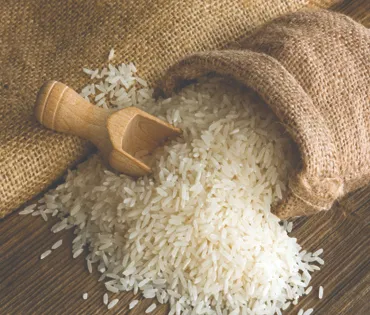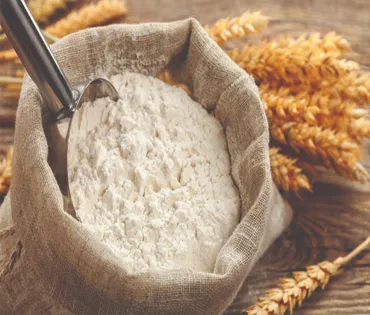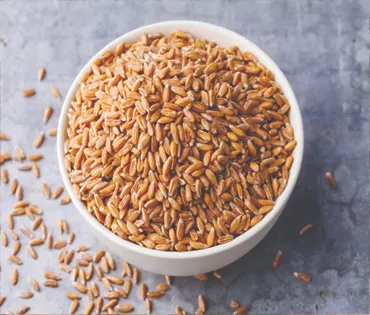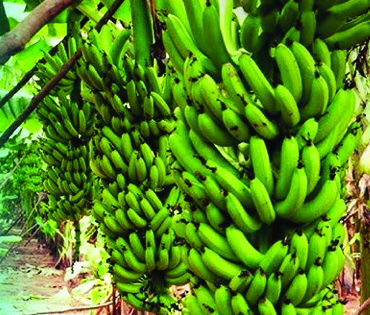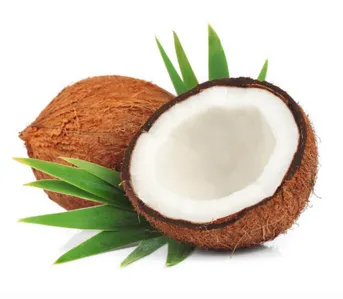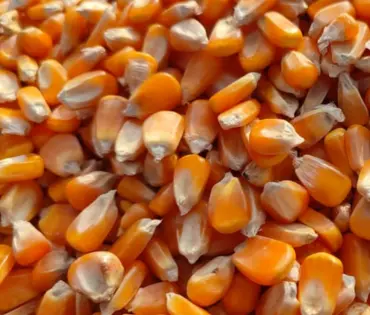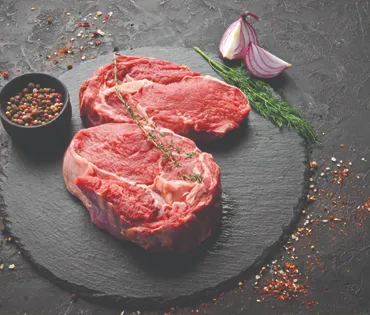Sona Masoori Rice
- Home
- /
- Sona Masoori Rice Exporter
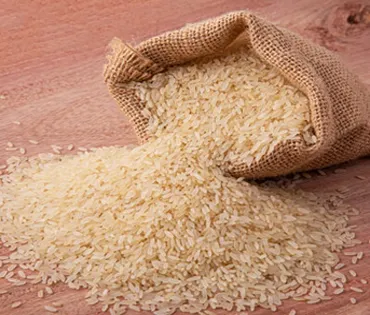
Sona Masoori Rice Exporter
Are you looking for high-quality and delicious rice? Look no further than ABZ Frozen Foods, one of the leading rice exporters from India. With a commitment to providing the best nutritional and quality of rice, ABZ has established itself as one of the top rice exporters in the country. Not only do they provide quality products, but they also make sure to offer all the satisfactory services. Their wide range of products makes them a one-stop-shop for all your rice needs. So, indulge in the best nutritional rice exported from India with ABZ Frozen Foods!
Modern rice exporters from India are equipped with advanced technology and infrastructure that enables them to efficiently process, package, and export high-quality rice to various international markets. These exporters leverage their expertise, market knowledge, and industry insights to meet the growing demand for Indian rice worldwide. Here are some key aspects of modern rice exporters from India:
State-of-the-art Processing Units: Modern rice exporters in India typically have state-of-the-art processing units equipped with modern machinery and technology for cleaning, de-husking, milling, grading, and sorting rice. These processing units are designed to ensure optimum rice quality, minimize losses, and maintain hygiene and food safety standards. Advanced processing techniques such as color sortex machines, pneumatic conveyors, and automated packaging systems are often employed to ensure consistency and efficiency in rice processing.
Quality Assurance and Certifications: Modern rice exporters prioritize quality assurance and often obtain certifications such as ISO, FSSAI, HACCP, and others to ensure that their rice products meet international quality standards. These exporters follow strict quality control measures at every stage of rice processing, from procurement to packaging, to ensure that the rice is free from contaminants, has optimal moisture content, and meets the desired specifications of their international customers. Quality assurance practices are critical to maintaining the reputation of Indian rice as a premium product in international markets.
Efficient Packaging and Logistics: Modern rice exporters in India utilize efficient packaging and logistics systems to ensure that the rice reaches its destination in optimal condition. They use various types of packaging materials such as jute bags, PP bags, and vacuum-sealed packaging to protect the rice from moisture, pests, and other external factors. These exporters also have well-established logistics networks and partnerships with shipping and transportation companies to ensure timely and reliable delivery of rice to international customers.
Market Knowledge and Industry Insights: Modern rice exporters from India have a deep understanding of the international rice market and keep themselves updated with the latest market trends, consumer preferences, and trade regulations. They have a keen eye on emerging markets, changing customer demands, and competitive landscapes to stay ahead in the global rice trade. This market knowledge and industry insights enable them to make informed decisions regarding rice procurement, processing, packaging, pricing, and market expansion strategies.
Market Knowledge and Industry Insights: Modern rice exporters from India have a deep understanding of the international rice market and keep themselves updated with the latest market trends, consumer preferences, and trade regulations. They have a keen eye on emerging markets, changing customer demands, and competitive landscapes to stay ahead in the global rice trade. This market knowledge and industry insights enable them to make informed decisions regarding rice procurement, processing, packaging, pricing, and market expansion strategies.
Customer-Centric Approach: Modern rice exporters from India prioritize customer satisfaction and have a customer-centric approach in their operations. They understand the specific requirements and preferences of their international customers and strive to meet them consistently. They may offer customized packaging, branding, and labeling solutions, provide prompt customer service, and maintain transparent communication to build long-term relationships with their customers. Customer satisfaction and loyalty are crucial to the success of modern rice exporters, as they rely on repeat business and positive word-of-mouth referrals in the international market.
In summary, modern rice exporters from India are characterized by their advanced processing units, quality assurance practices, efficient packaging and logistics, market knowledge, sustainable practices, and customer-centric approach. These exporters are well-positioned to cater to the global demand for Indian rice by providing high-quality rice products that meet international standards and customer expectations.
Plays a big role for sona mansoori rice industry
Sona Mansoori rice is a popular variety of rice that is predominantly grown in the Indian states of Telangana and Andhra Pradesh. Here are some key points about the Sona Mansoori rice industry:
Production: Sona Mansoori rice is primarily cultivated in the states of Telangana and Andhra Pradesh in India. It is a medium-grain rice with a distinct aroma and is known for its fluffy texture and delicious taste. The rice is typically grown using traditional farming methods, including manual planting, natural irrigation, and minimal use of pesticides, making it a preferred choice among health-conscious consumers.
Demand: Sona Mansoori rice is in high demand in both domestic and international markets due to its unique aroma, texture, and taste. It is commonly used in various Indian and South Asian dishes, such as biryani, pulao, and fried rice, and is favored for its ability to absorb flavors well during cooking. The growing popularity of Indian cuisine globally has led to an increased demand for Sona Mansoori rice in international markets, particularly in countries with a large Indian diaspora.
Processing and Packaging: Sona Mansoori rice is typically processed using modern milling techniques to remove the outer husk, bran, and germ, while retaining the nutritious endosperm. The processed rice is then cleaned, sorted, and packaged in various forms such as raw rice, parboiled rice, and broken rice. Packaging is done in airtight containers or bags to retain the freshness, aroma, and quality of the rice.
Quality Assurance: The Sona Mansoori rice industry places a strong emphasis on quality assurance. Many rice mills and exporters follow strict quality control measures to ensure that the rice meets the desired standards. This may include testing for moisture content, purity, and other quality parameters. Certifications such as ISO, FSSAI, and HACCP are often obtained by rice mills and exporters to ensure that the rice is safe and of high quality.
Export Potential: Sona Mansoori rice has significant export potential, particularly in countries with a high demand for Indian rice. The unique aroma, texture, and taste of Sona Mansoori rice make it a preferred choice in the international market. With proper processing, packaging, and adherence to quality standards, Sona Mansoori rice can be successfully exported to various countries, contributing to the growth of the rice industry in India.
Market Competitiveness: The Sona Mansoori rice industry faces competition from other rice varieties in the domestic and international markets. To stay competitive, rice mills and exporters need to continually improve their processing, packaging, and quality control practices. They also need to stay updated with market trends, customer preferences, and changing trade regulations to effectively compete in the global rice market.
In conclusion, the Sona Mansoori rice industry in India is characterized by its production in Telangana and Andhra Pradesh, high demand in domestic and international markets, modern processing and packaging techniques, focus on quality assurance, export potential, and market competitiveness. The industry plays a significant role in the agricultural economy of India and has the potential for further growth in the future.
Future scope to being market leader
As ABZ Frozen Food continues to establish itself as a prominent player in the food industry, there are potential future opportunities for the company in the Sona Mansoori rice industry in India. Here are some potential areas of future scope:
Diversification into Sona Mansoori Rice: ABZ Frozen Food could consider diversifying its product offerings to include Sona Mansoori rice. This could involve procuring high-quality Sona Mansoori rice from reliable sources, processing and packaging it to meet international quality standards, and exporting it to global markets. With its established expertise in the food industry and existing infrastructure for processing and packaging, ABZ Frozen Food could leverage its capabilities to tap into the growing demand for Sona Mansoori rice in domestic and international markets.
Value-added Rice Products: ABZ Frozen Food could explore opportunities to create value-added rice products using Sona Mansoori rice. This could include products such as pre-cooked or parboiled Sona Mansoori rice, flavored rice mixes, ready-to-eat rice-based meals, and rice-based snacks. These value-added products could cater to the changing consumer preferences for convenient, healthy, and ready-to-consume food options, both in domestic and international markets.
Organic and Specialty Rice: ABZ Frozen Food could consider venturing into the production and export of organic and specialty Sona Mansoori rice. As the demand for organic and specialty food products continues to grow globally, there is an opportunity to cater to health-conscious and environmentally-conscious consumers who seek high-quality, sustainably-produced rice. ABZ Frozen Food could work with local farmers to promote organic and specialty rice cultivation practices, establish a reliable supply chain, and target niche markets for these premium rice products.
Expansion into New Markets: ABZ Frozen Food could explore expanding its market reach for Sona Mansoori rice by targeting new markets. This could include identifying and entering emerging markets with a growing demand for Indian rice, diversifying its export destinations, and establishing strategic partnerships with local distributors or retailers. Expanding into new markets could help ABZ Frozen Food tap into untapped opportunities and broaden its customer base, leading to increased sales and business growth.
Innovation and Technology: ABZ Frozen Food could invest in research and development to drive innovation and technology adoption in the Sona Mansoori rice industry. This could include developing new processing techniques, improving packaging methods to enhance shelf life and freshness, and adopting advanced technologies for quality control and traceability. Innovation and technology adoption could help ABZ Frozen Food stay ahead of the competition, improve operational efficiency, and meet the changing needs of customers and regulatory requirements.
In conclusion, ABZ Frozen Food has the potential for future growth in the Sona Mansoori rice industry in India by diversifying its product offerings, creating value-added rice products, exploring organic and specialty rice, expanding into new markets, and investing in innovation and technology. By leveraging its expertise, infrastructure, and market knowledge, ABZ Frozen Food could capitalize on the opportunities presented by the Sona Mansoori rice industry and further strengthen its position as a leading player in the food export industry in India.

